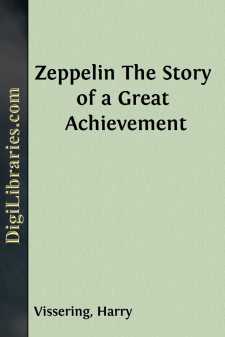Categories
- Antiques & Collectibles 13
- Architecture 36
- Art 48
- Bibles 22
- Biography & Autobiography 813
- Body, Mind & Spirit 141
- Business & Economics 28
- Children's Books 12
- Children's Fiction 9
- Computers 4
- Cooking 94
- Crafts & Hobbies 4
- Drama 346
- Education 46
- Family & Relationships 57
- Fiction 11826
- Games 19
- Gardening 17
- Health & Fitness 34
- History 1377
- House & Home 1
- Humor 147
- Juvenile Fiction 1873
- Juvenile Nonfiction 202
- Language Arts & Disciplines 88
- Law 16
- Literary Collections 686
- Literary Criticism 179
- Mathematics 13
- Medical 41
- Music 40
- Nature 179
- Non-Classifiable 1768
- Performing Arts 7
- Periodicals 1453
- Philosophy 64
- Photography 2
- Poetry 896
- Political Science 203
- Psychology 42
- Reference 154
- Religion 513
- Science 126
- Self-Help 83
- Social Science 81
- Sports & Recreation 34
- Study Aids 3
- Technology & Engineering 59
- Transportation 23
- Travel 463
- True Crime 29
L.P.M. : the end of the Great War
Categories:
Description:
Excerpt
CHAPTER I
THE MAN AND THE HOUR
The Secretary of State, although he sought to maintain an air of official reserve, showed that he was deeply impressed by what he had just heard.
"Well, young man, you are certainly offering to undertake a pretty large contract."
He smiled, and continued in a slightly rhetorical vein—the Secretary was above all things first, last, and always an orator.
"In my many years of public life," he said, "I have often had occasion to admire the dauntless spirit of our young men. But you have forced me to the conclusion that even I, with all my confidence in their power, have failed to realize how inevitably American initiative and independence will demand recognition. It is a quality which our form of government seems especially to foster and develop, and I glory in it as perhaps the chief factor in our national greatness and pre-eminence.
"In what other country, I ask you," he flung out an arm across the great, flat-topped desk of state, "would a mere boy like yourself ever conceive such a scheme, or have the incentive or opportunity to bring it to perfection? And, having conceived and perfected it, in what other country would he find the very heads of his Government so accessible and ready to help him?"
The young man leaned forward. "Then am I to understand, Mr. Secretary, that you are ready to help me?"
"Yes." He faced about and looked at his visitor in a glow of enthusiasm. "Not only will I help you, but I will, so far as is practicable, put behind you the power of this Administration.
"Doubtless the newspapers," his tone took on a tinge of ironic resentment, "when they learn the broad character of the credentials that I shall give you in order that you may meet the crowned heads of Europe, will say that I am again lowering the dignity of my office. But I consider, Mr. Edestone, that I am, in reality, giving more dignity to my office by bringing it closer to and by placing it at the services of, those from whose hands it first received its dignity, the sovereign people. 'The master is greater than the servant'; and to my mind you as a citizen are even more entitled to the aid and co-operation of this Department than are its accredited envoys, our ministers and ambassadors, who, like myself, are but your hired men."
His face lighted up with the memory of the many stirring campaigns through which he had passed and his wonderful voice rang out, responding to his will like a perfect musical instrument under the touch of the artist.
"I tell you, sir," he declared, "I would rather be instrumental in bringing to an end this cruel war which is now deluging the pages of history with the heart's blood of the people, whose voices may now be drowned in the roar of the 42-centimeter guns, but whose spirits will unite in the black stench clouds which rise from the festered fields of Flanders to descend upon the heads of those who by Divine Right have murdered them,—I would rather be instrumental in bringing about this result, than be President of the United States!"
He had risen, as he spoke, and had stepped from behind his desk to give freer play to this burst of eloquence, but he now paused at the entrance of a secretary for whom he had sent, and changing to that quizzical drawl with which he had so often disarmed a hostile audience, added, "And they do say that I am not without ambition in that respect."
He turned then to the waiting secretary, and letting his hand drop on
Edestone's shoulder:
"Mr....






